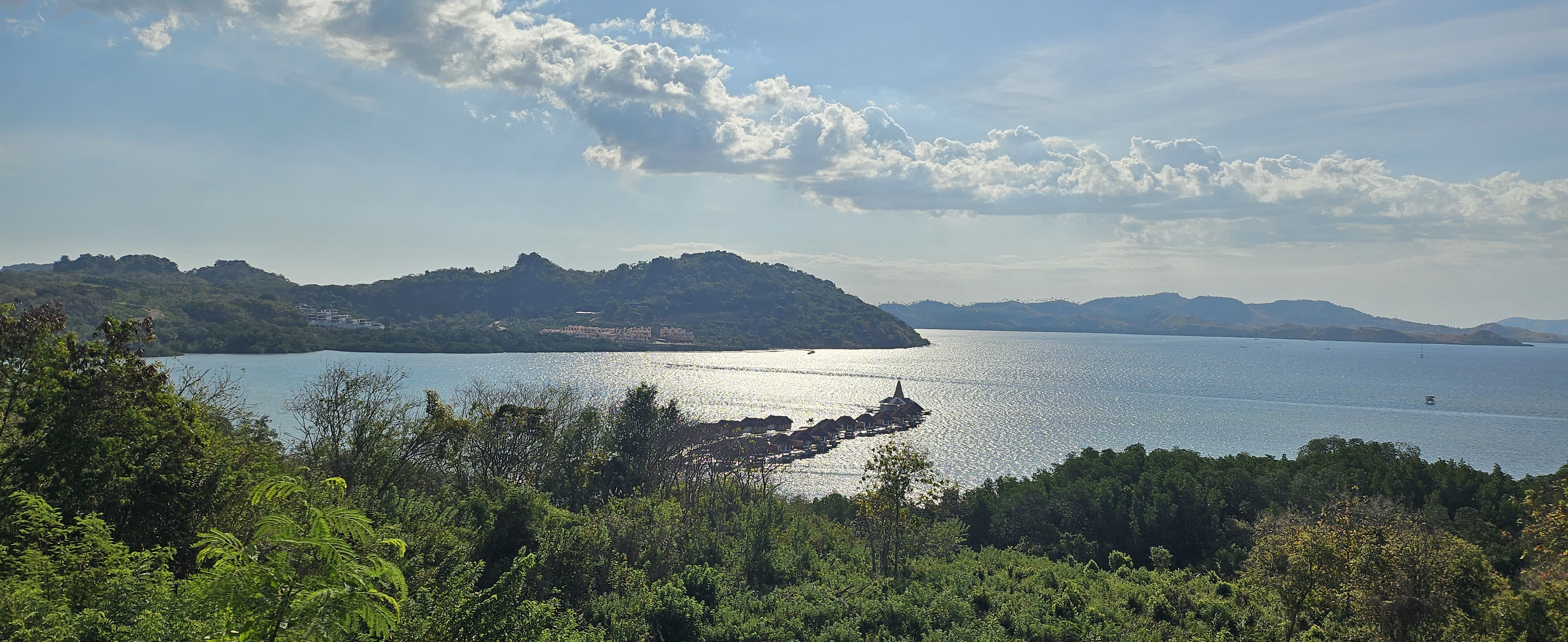AP COVID Hospitality Bulletin Asia Pacific - February 2022
by

New article: Ecologic Obsolescence: calculating the value at risk for stranded hotel assets.
As ESG becomes a growing trend in real estate investing, hotel assets are often neglected in the discussion. Our new article presents the importance of net-zero carbon emissions on hotel properties, including analysis of current performance, future goals, and value at risk from foregoing necessary conversions to net-zero carbon by 2050. Click here to understand “ecologic obsolescence” further.
Transactions that matter.
1. Hyatt on the Bund, Shanghai
- Hong Kong-listed developer, Shimao Group, announced the sale of Hyatt on the Bund to Shanghai Land Group, a state-controlled enterprise, at RMB 4.5 billion (USD 708 million) or USD 1.1 million per key. This 631-key property does not belong to any of the Hyatt official brands, yet is strategically located at the Bund with proximity to major tourist attractions and Luijaizui financial district.
- The disposal of the property is expected to bring USD 473 million cash flow to Shimao Group which is actively seeking buyers for its assets to reduce its debt. The hotel asset is at least the fourth disposal announced by the group this month after residential projects in Guangzhou and Hong Kong and one vacant plot of land in Shanghai. Additionally, it is reported that the group plans to sell more hotel assets across China, including several properties in Shanghai and Nanjing.
- The acquisition is part of the Chinese government’s push to buy assets from private developers facing debt crisis after tightening regulations on the property sector. Listed developers, including Sunac China Holdings, Evergrande Group, and Kaisa Group are also reported to dispose assets to meet regulatory curbs since the second half of 2021. The latest sales of hotel assets include one hotel property in Hangzhou sold by Sunac China Holdings in December 2021.
2. Casa Hotel and Travelodge Central Hollywood Road, Hong Kong
- PGIM, the investment arm of Prudential Financial, acquired two hotel properties in Hong Kong, both of which are to be repositioned for co-living. The transactions include 162-key Casa Hotel in Kowloon at HKD 590 million (USD 76 million), or roughly USD 467,000 per key and 148-room Travelodge Central Hollywood Road in Hong Kong Island at HKD 850 million (USD 109 million), or roughly USD 737,000 per key.
- Travelodge Central Hollywood Road was sold by joint owners, private equity firm Schroders (who assumed ownership after taking a majority stake in real estate investment manager Pamfleet in 2020) and Singapore-listed investment company ICP. Formerly Butterfly on Hollywood, the hotel was rebranded as Travelodge Central Hollywood Road after ICP acquired the property in 2017 for HKD 850 million - making zero gain on the exit. Situated in Sheung Wan, the property enjoys great connectivity to major tourist attractions and major business district. Regional co-living operator, Dash Living, announced the takeover of the property, and the deal is expected to be completed in H2 2022.
- Located in Yau Ma Tei, Casa benefits from convenient location and was positioned to attract both leisure and business travelers from mainland China before the pandemic. Additionally, there are three commercial spaces facing Nathan Road, which is one of the busiest streets in the area. The seller is believed to be an individual investor in Hong Kong; the hotel has been put in the market since 2020 and the reported asking price was up to HKD 800 million at that time. However, the lasting pandemic and closed border between Hong Kong and Mainland China dragged down the price of the property which is set for conversion to co-living.
- The co-living sector in Hong Kong is booming since 2021 when major hotel transactions in the city were reported to be repositioned as co-living or extended stay properties. At the same time, hotel conversion is another strategy for asset owners as local authorities received several applications for hotel conversions into residential and mixed-use units across the city, such as Travelodge Kowloon, Novotel Nathan Road Kowloon, and properties owned by Cheung Kong Holdings.
3. Seibu Holdings Portfolio, Japan
- Japanese railway conglomerate, Seibu Group, is in final talks with Singaporean sovereign wealth fund GIC to sell approximately 30 properties at 150 billion yen (USD 1.3 billion). The sale is reportedly to include more than 10 hotels, such as Prince Park Hotel Tokyo, Prince Hotel Sapporo and Grand Prince Hotel Hiroshima along with other leisure facilities across Japan. Seibu Holdings would continue operating the properties after the sale and retain the properties under the Prince Hotel brand.
- The sale can be traced back to July 2021, when Seibu Holdings were seeking for buyers of roughly 40 properties at that time. The group decided to put the sale of some hotels on hold according to local media. Seibu Holdings was hit heavy on its core business, railway and hotel operations, from the COVID-19 pandemic. The sale of the assets would help increase the cash flow, and the company would be able to concentrate on other business at the same time. Another Japanese railway company, Kintetsu Group, also offloaded a portfolio of 8 hotels to Blackstone Real Estate back in March 2021 to focus on its core business amid the pandemic.

COVID news that matter.

Macau SAR
- Following the zero-COVID policy of Mainland China, Macau kept its border closed with only a limited number of inbound tourists (mainland China aside) in 2021. Macau welcomed 7.7 million visitors in 2021, and Mainland China, Hong Kong SAR and Taiwan accounted for over 96% of the total number. While the figure reflects a 30.7% year-on-year growth, it is still an 80% decrease compared to 2019. At the same time, monthly gross gaming revenues (GGR) also remained low since October 2021. In January 2022, monthly GGR reached MOP 6,344 million with a 20.9% year-on-year decrease and 20.3% month-on-month decrease. The one-week Lunar New Year holiday in early February boosted the number of inbound visitors by 23.2% in Macau with leisure travelers from Mainland China up 26.5% from 2021. GGR figures are yet to be announced.
- The reformation of the gambling law in Macau was announced in mid-January: six casino licenses will remain, but their duration will be shortened to 10 years with maximum 3 years of extension from 20 years with 5-year extension. The licenses of current operators, including Wynn, Sands, MGM, SJM Holdings, Galaxy Entertainment and Melco Resorts are all due in June this year. While the future of Macau’s gambling business is clouded with uncertainty brought by the reform and dragging pandemic, several new hotels are set to open in 2022, such as W Macau, Raffles Hotel Macau, and Andaz Hotel Macau.
The Philippines
- Originally planning to open its border in December, The Philippines revealed its latest border reopening plans to be set for February 10. The country plans to open the country to visitors from over 150 countries with visa-free travel arrangements, and mandatory quarantine would be waived for vaccinated travelers with negative PCR tests. The country is preparing itself for the return of international travelers with a number of travel routes, and Manila would hold the World Travel & Tourism Council (WTTC) Global Summit in April as well.
- The tourism industry has been the main pillar of The Philippines’ economy, as the share of tourism to national GDP reached 12.7% in 2019. Popular attractions, such as Boracay and Cebu, relied solely on the domestic market in the past two years amid the COVID-19 pandemic. Officials estimate a five-year recovery from the pandemic for Boracay as almost half of 314 accredited establishments closed down temporarily.
South Korea
- Maintaining its strict 14-day quarantine for all foreign visitors, Korea opens its border with Singapore via Vaccinated Travel Lane (VTL) earlier this year. Although more countries are preparing for the reopening after the spread of Omicron in Asia, the number of confirmed cases in Korea continued to increase rapidly in January. The record-high number is likely to delay the progress of Korea’s reopening plans in 2022.
- While the Omicron variant raises concern in the country, Jeju island, the southern resort island, received over 200,000 tourists during the Lunar New Year. The number of visitors marked an increase of 32.9% from last year’s figure during the holiday. Although it seems encouraging to the local tourism industry, it also brings concern of further local outbreaks in the country.
Subscribe to our newsletter
Stay up-to-date with industry news, publications and announcements from our firm.








